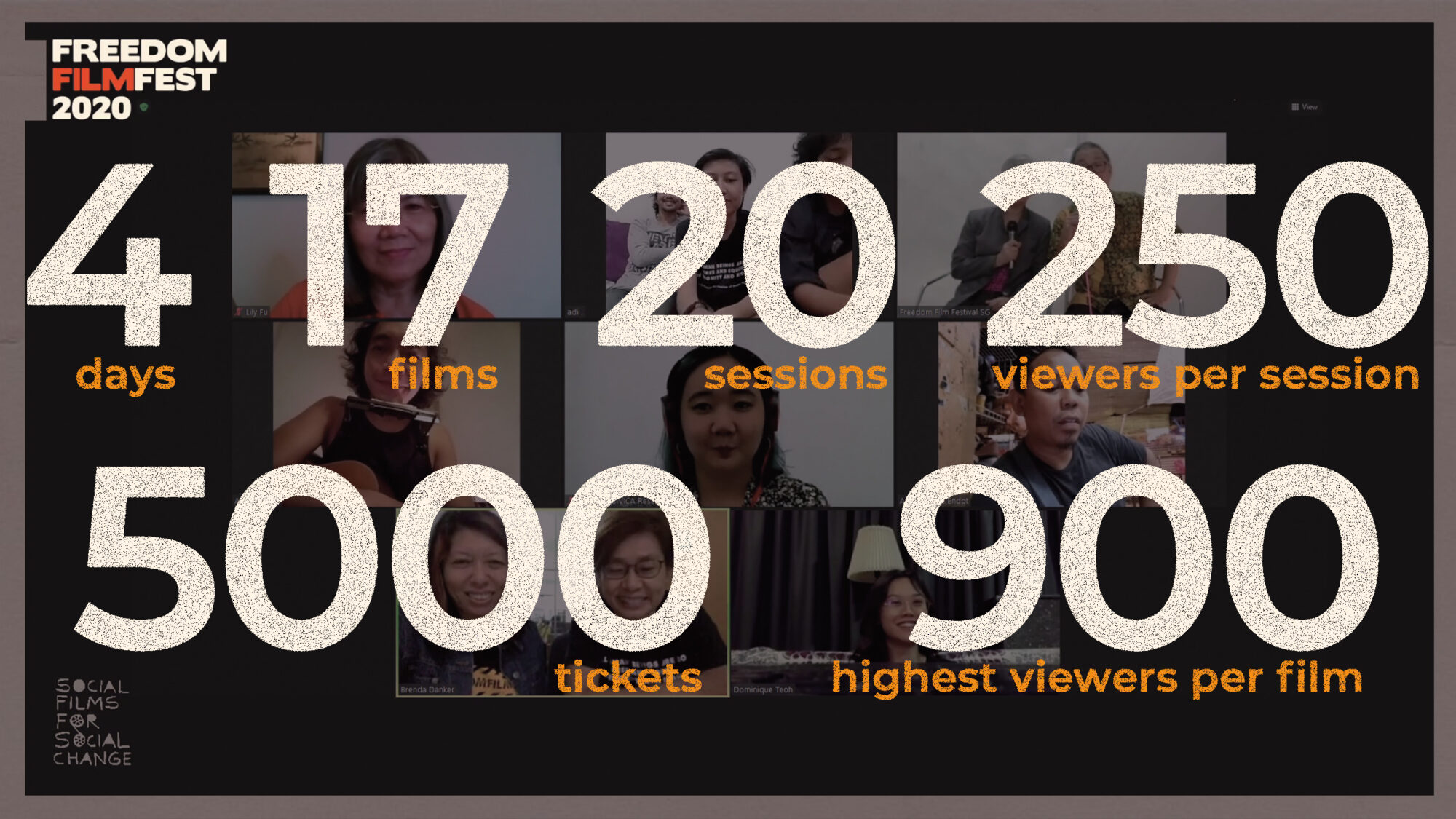
About 10 minutes into the first online screening of “Meniti Senja” – part of the 2020 FreedomFilmFest – a chat box meant for the audience to comment on the film blew up.
Accolades, comments and criticism flooded in so fast from its 300 viewers that it was nearly impossible to keep up with what was being said. Comments were being replaced and pushed down by newer ones just as soon as they appeared. Everyone heaped praise on its main character Muji Sulaiman, who runs an elderly care centre for abandoned seniors. Many also criticised the government for not aiding the care centre and its forlorn residents.
This spirited response from viewers was repeated throughout the 17 films that premiered at this year’s edition of Malaysia’s only human rights film festival from 10 – 13 December. From “Meniti Senja” to “Petani Bukan Pemalas” and to little animated films on women’s voices, audiences plunged into the chat box and made their enthusiasm felt for characters, filmmakers and issues. The post screening talks were lively exchanges not just between panellists and the audiences but between viewers who found support for their beliefs.
This camaraderie and liveliness proved that despite the physical isolation imposed on us during the pandemic, we hunger for social connection. More than that, as we become increasingly cynical of our politicians who put power-grabs over peoples’ welfare, they look for hope among ordinary citizens.
Evidence of this was in the phenomenal take up tickets for some of the screenings. For “Meniti Senja”, 900 tickets were given out for three screenings meaning that an average of 300 people tuned in for each show and talk. This is equivalent to a full house at the PJ Live Arts main hall where the festival was held in the past.
In total, about 5,000 tickets were given out for 20 sessions and 17 films (9 Malaysian films and eight regional films). Each session averaged about 250 viewers, while the largest one had 370.
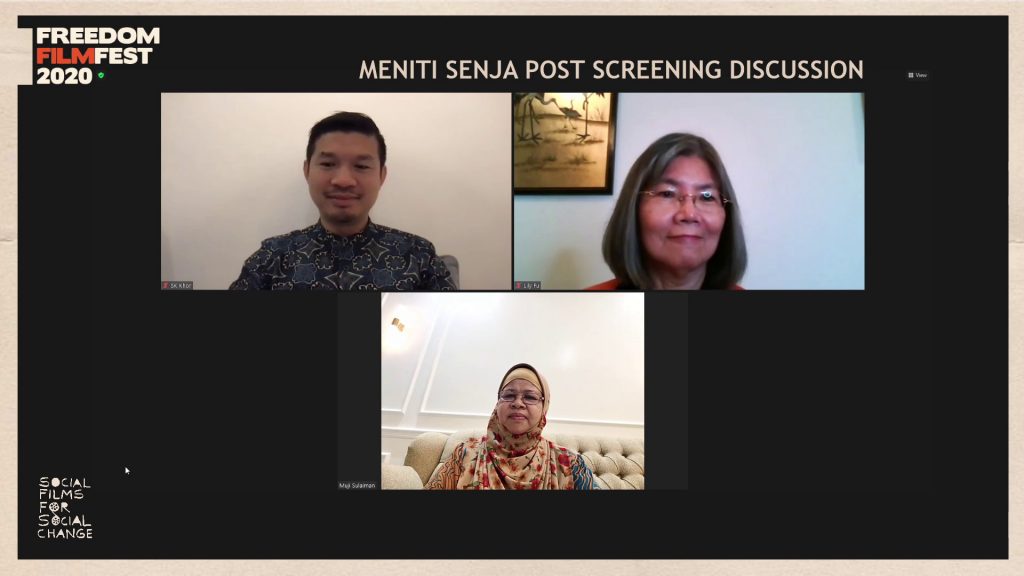
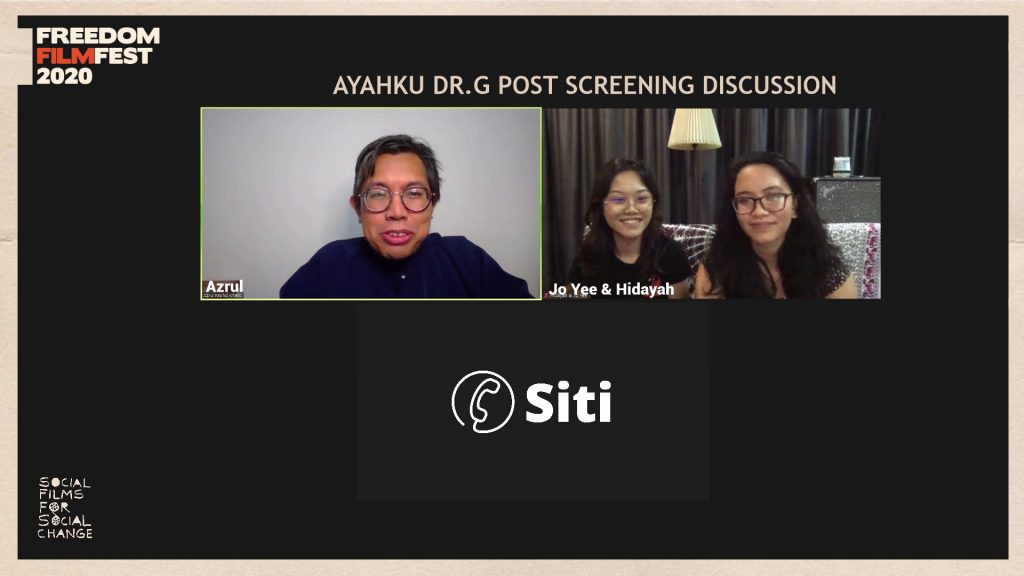
Even with the pandemic and a scaled-down, online festival, “we had double the audience compared even with half of the films as compared to 2019
FFF2020’s director Anna Har
“We have viewers tuning in from 13 countries,” said Anna, adding that the Freedom Film Network, which organises the festival, produced seven films in 2020 – one more than 2019 despite Covid-19.
Digital bridge divides
Being online also meant that people from outside of the Klang valley could hold their own local screenings and watch parties. So for the first time, FFF2020 partners held screenings during the same weekend in Pahang, Penang, Johor, Kedah, Sabah and Sarawak, and Singapore.
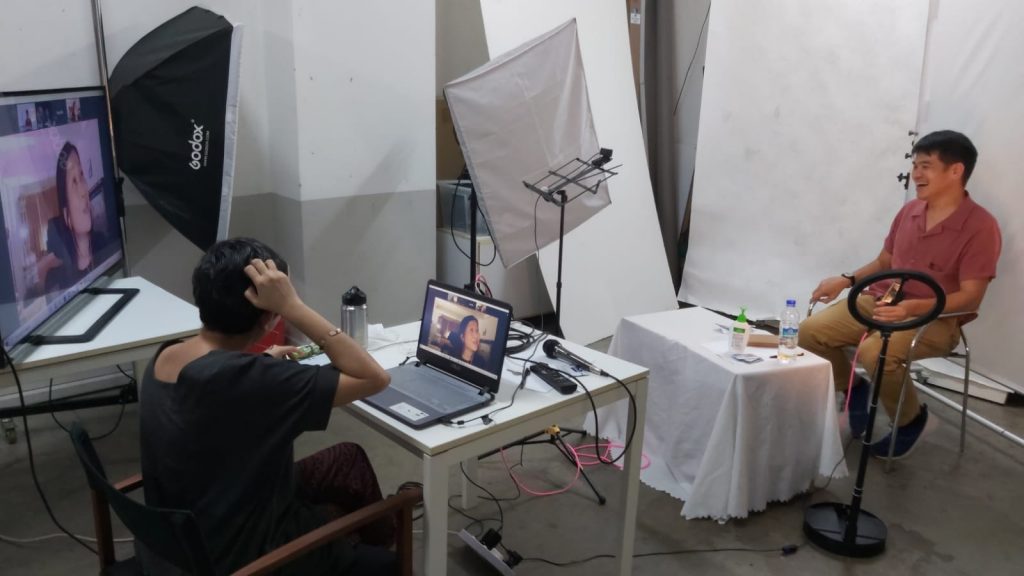

Singapore’s screenings featured a premier of “Shades of Love” on the struggles of the island republic’s sex workers during the pandemic that included a humorous and eye-opening discussion with filmmaker Jessica Lee and the work’s personalities. The weekend also included a retrospective on Singaporean films such as “Syed Zahari’s 17 years”, “Invisible City” and the “The Great North Korean Picture Show”.
On the other side of the causeway, different regions also held simultaneous screenings on the weekend that featured lively discussions. Muar and Temerloh held screenings of “Meniti Senja”, where the latter included Muji and a State Welfare Department officer who shared the government’s approach with elderly care centres.
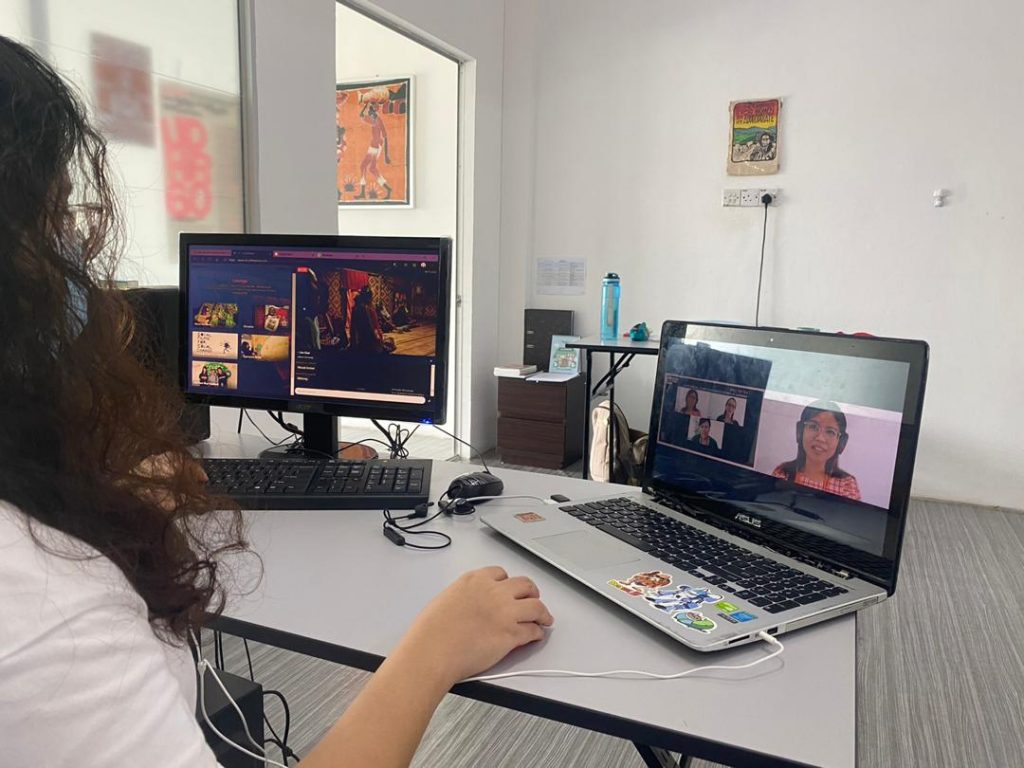

Georgetown’s sessions featured “Di Luar Bayangan” a series of films of activists and citizens trying to get answers on family members who died while in custody. In Langkawi, locals gathered for a screening on “Petani Bukan Pemalas” and a discussion on the challenges and opportunities of the island’s paddy farmers, many of whom are cultivating organic rice.
So even as viewers were deprived of the communal experience of being physically together in a cinema, their passion was translated online through their viewership and through the chat boxes of online screening platform Cloud Theatre. Rather than dampening participation, the online screenings allowed those who could not attend a physical screening in the past to do so this year.
This enthusiasm was also due to the fact that some of the biggest films this year – “Ayahku Dr G’, “Petani Bukan Pemalas”, “Meniti Senja” – were stories of ordinary people over-coming steep obstacles.
“Ayahku, Dr G” was of a daughter fighting to save her father who is on death row just because he used marijuana to cure his chronic illnesses. “Petani Bukan Pemalas” featured a courageous paddy farmer taking on a system that traps farmers like him in a vicious cycle of decreasing harvests and debts. And then there is Muji, the protagonist of “Meniti Senja”, who uses her own money to run an elderly care centre where 80% of its residents are either poor or have been abandoned by their children.
“Selai Kayu Yek” and “Klinik Ku Hutan” were two other films that captured the hearts of audiences for their inventive portrayals of issues faced by Orang Asli women. The films themselves were written, shot and produced by Orang Asli women, perhaps the first of such works by members of this community who are seldom given a voice in the mainstream media and films. Besides congratulating the women in the film, viewers pledged to support more of such works and demanded that these films be screened on public television.
Book-ending the festival was the premier of “Nasir Jani Melawan Lembaga Puaka”, a film on Malaysia’s censorship of the art form itself – a recurring issue at the core of the festival and Freedom Film’s Network’s mission. The film concerns iconic filmmaker Nasir Jani’s long struggle against censorship, the toll its had on his life and career and its affect on the Malaysian public. The festival signed off with a talk with another regional film icon Riri Riza, on the experience of Indonesian filmmakers who changed the republic’s laws on censorship.
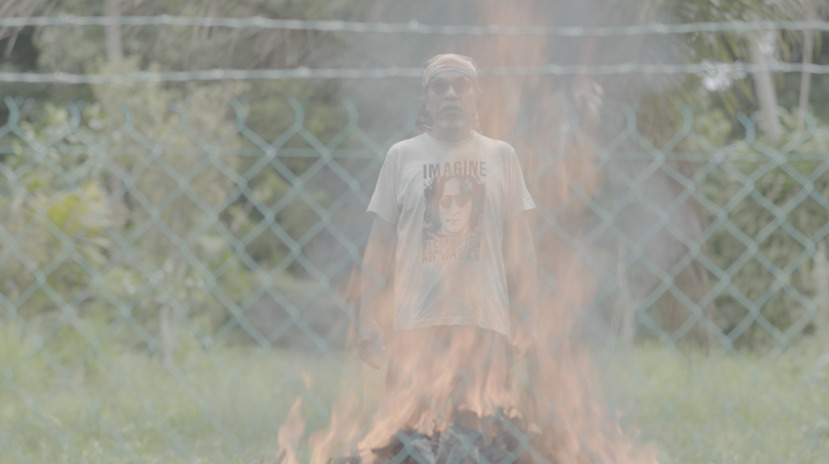
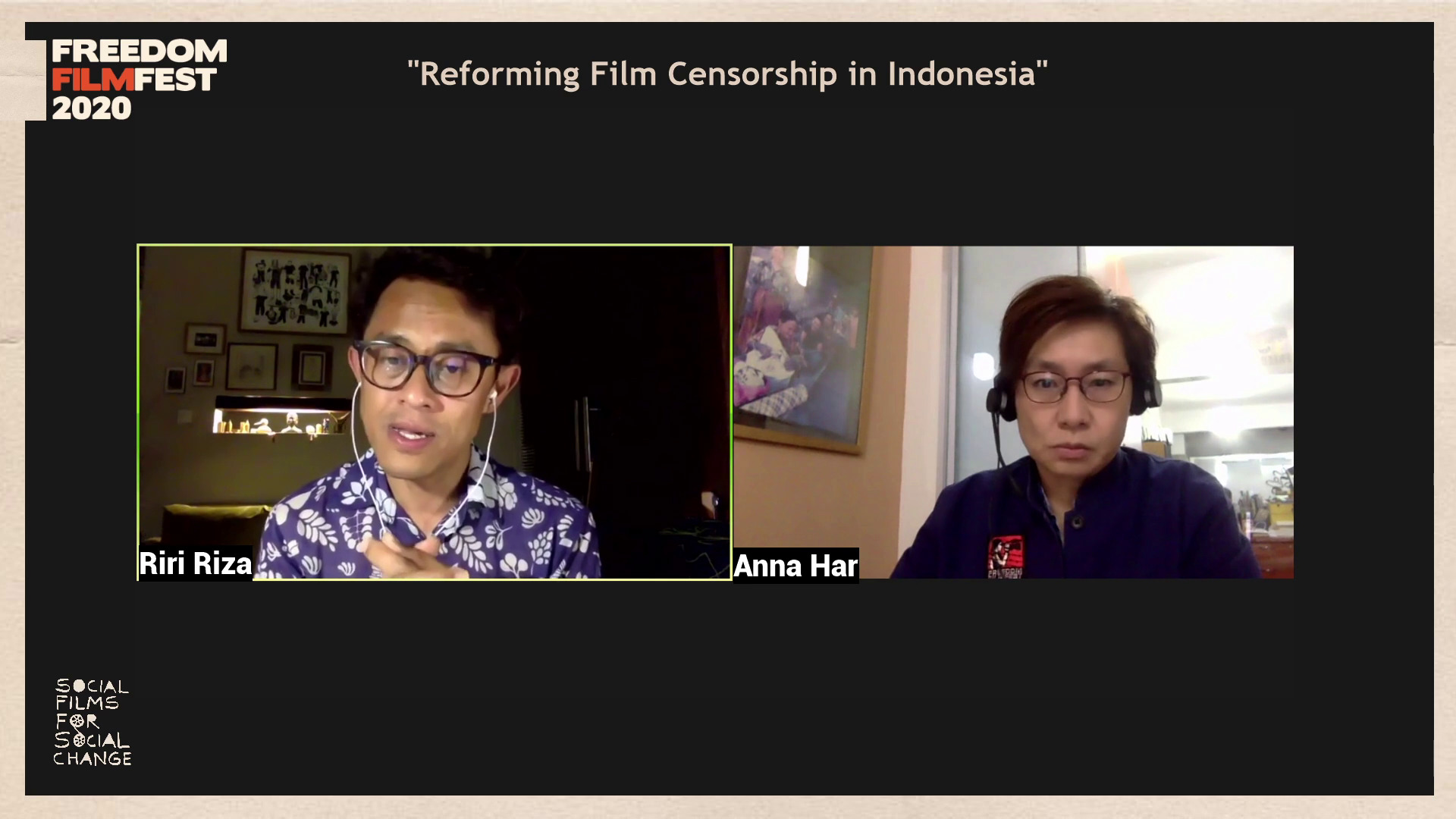
Kota Kinabalu’s session with “Shades of Love” included a discussion on the struggles of sex worker in Sabah during the pandemic. The empowerment of indigenous women’s voices became the theme of screenings in Kuching which featured “Selai Kayu Yek” and “Klinikku Hutan”.
So although FFF2020 was drastically scaled down and moved online because of the pandemic, it did not lose the love, passion and support it has always received. In fact, the online festival showed that instead of being a roadblock, technology can be properly harnessed to shrink distances and lower barriers to reach viewers who in the past could not make it to a physical screening. This bodes well for the future of FFF’s films as it means more and more people would get the chance to experience the stories, interact with storytellers and support their causes.
Although the pandemic cut the timing and scale of the festival, there was almost no effect on the heaps of love and support for its films.
